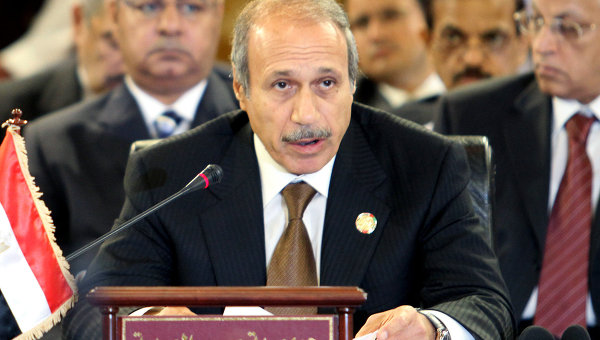CAIRO: Experts highlighted the important role the media plays in shaping public opinion about orphans in Egypt as the Wataneya Society for the Development of Orphanages launched a new initiative titled “Amaan,” or “Security.”
While there exists an abundance of orphanages in Egypt, very little attention is given to the quality of care they offer. From there, Amaan, or “Security,” was launched working on the development of human resources at orphanages.
While Amaan initiative will be working on the enhancement and development of orphanages, experts agreed that the media plays the more crucial role in the initiative.
Azza Abdelhamid, founder of the Wataneya Society for the Development of Orphanages, explained that their portrayal in the media is one of the major problems orphans are facing in Egypt.
“First of all the media is responsible for forming and shaping public opinion regarding the cause,” said Alia Abo Douma, professor of Mass Communication at Cairo University.
She explained that the media can also bring the issue of orphans into the spotlight and most importantly, portray a positive image of orphans as 70 percent of the mental image is formed by the media.
Abo Douma pointed out that the media, as part of its responsibility as a change mechanism, to help the orphans accept their living conditions and encourage them to communicate and integrate in their society.
She also said the media should create a culture where people deal with orphans as an active part of society.
Moreover, the terminology used in the media when referring to orphans is associated with a certain stigma. These words include, “bastard child” and “sin child,” she explained.
In addition, the media has to spread the notion of organized charity and encourage people to help orphanages throughout the year and not only on Orphans Day.
Television presenter, Alaa Basiouny, who was present at the discussion, pointed out that there is a need for having a criterion for orphanages in Egypt, which will set the standards for the place and people working there before they are given the license to operate.
Meanwhile, there needs to be a nationwide awareness campaign and training workshops for the media to work on removing the stereotypes surrounding orphans. “Our culture and religion promotes this, but we tend to deviate,” he noted.
Orphans were first featured in Egyptian cinema in a popular movie titled “Yasmine” in 1943, followed by the movie “Sins” in 1962 in which Abdel Halim Hafez played a young man who gets kicked out by who he thought was his family.
However, in 2001 the successful television series “Many Faces of Justice” which was aired in Ramadan starring Yehia El-Fakharany worked on removing the stigma by showing how an orphan became an active and successful member of society, meanwhile hiding the fact that he is an orphan.
“I wanted to show how society can turn the orphan either into a time bomb or into an active citizen,” said scriptwriter Magdy Saber.
Thanaa Shaaban, who manages an orphanage for girls, explained that our society may give orphans monetary donations but rejects them as part of the society.
At the school where the girls are admitted, Shaaban poses as their grandmother so they are not subjected to harassment. However, because she couldn’t do that at the sporting club they applied, they were rejected.
“Orphans are not even as second degree citizens but tenth degree citizens,” she noted.
Abdelhamid said her organization acts as a guide for orphanages around the country.
“Our primary objective is to be a place of expertise for orphanages in order to provide quality care,” she said.
Abdelhamid recalled the reasons that drove her to found the organization.
As a teenager, she was a regular visitor to an orphanage, where she got attached to one boy in particular. However, while her visits were discontinued after five years, she continued to support him by sending money to the orphanage.
Eight years later, she found him at her doorstep, asking her to take him in because he ran away from the orphanage.
Abdelhamid refused and told him to go back to the orphanage. However, he ended up on the street.
Abdelhamid was left with a guilty conscience, prompting her to pay different orphanages around the country visits, in an attempt to study the reasons that would make an orphan run away.
“I realized that this is a major issue, orphanages in Egypt are in a dilemma,” she said.



